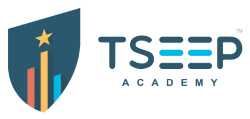Life Skills: The Missing Link in Indian Education

In a time of rapid socio-economic change and growing mental health concerns among adolescents, Life Skills Education (LSE) is increasingly recognized as vital for preparing students not just for exams, but for life itself. Life skills – defined by the World Health Organization as abilities that enable individuals to deal effectively with the demands of everyday life—are key to building emotional intelligence, self-confidence, and social competence. In India, a program evaluated by UNFPA and the Centre for Media Studies (2013) across six states revealed that students trained in life skills displayed enhanced self-esteem, better decision-making, and increased gender sensitivity. The findings supported the integration of life skills into adolescence education to foster responsible citizenship and personal well-being.
Further evidence was provided by the Room to Read India Trust (2018), which implemented a girls’ education program in Rajasthan, Chhattisgarh, and Uttarakhand. The program incorporated life skills training alongside academic support and showed statistically significant improvements in communication skills, self-efficacy, and school retention among adolescent girls. Similarly, the Yuva Mitr initiative by the Department of School Education, Maharashtra (2020), focused on socio-emotional learning and life skills as part of a post-COVID mental health response, helping students cope with anxiety, isolation, and learning disruptions. These regionally diverse interventions demonstrate that life skills education has broad applicability and strong impact across different socio-economic and geographic settings in India.
Despite the growing body of evidence, LSE still lacks universal implementation. According to the Pratham Annual Status of Education Report (ASER, 2022), while basic literacy and numeracy continue to be areas of concern, socio-emotional skills are often entirely overlooked in school curricula. Teachers, especially in government schools, are rarely trained to address students’ emotional needs or to use participatory and experiential pedagogies that build life skills. A 2021 study by the Indian Institute of Management Ahmedabad (IIMA) also found that while state education boards increasingly mention “21st-century skills,” they fall short in defining measurable competencies or training mechanisms, limiting practical application.
To bridge this gap, policy-level frameworks must move toward integrated, measurable, and scalable approaches. The Samagra Shiksha scheme (MoE, 2021) has taken promising steps by including life skills under holistic education and supporting states to develop their own content. Likewise, the State Council of Educational Research and Training (SCERT) Kerala (2022) launched a Life Skills Handbook for middle school teachers, promoting peer-led discussions and reflective learning practices. The NITI Aayog’s Strategy for New India @75 (2018) has also highlighted the need to include socio-emotional learning to boost human capital outcomes. Prioritizing these efforts will enable schools across India to develop not just academically proficient, but emotionally resilient, empathetic, and future-ready citizens.
References
- UNFPA & Centre for Media Studies (2013). Assessment of Life Skills Education under AEP in India.
- Room to Read India Trust (2018). Girls’ Education Program – Life Skills Impact Assessment Report.
- Yuva Mitr (2020). Socio-Emotional Learning Initiative by Maharashtra School Education Department.
- Pratham (2022). Annual Status of Education Report (ASER).
- IIM Ahmedabad (2021). Mapping 21st Century Skills in Indian State Curricula.
- Samagra Shiksha (2021). Operational Guidelines, Ministry of Education, Government of India.
- SCERT Kerala (2022). Life Skills Education Handbook for Middle School Teachers.
- NITI Aayog (2018). Strategy for New India @75 – Education & Human Capital Focus.




